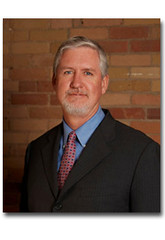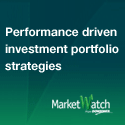Our goal with InvestingThesis.com is to try and unearth an analyst’s or portfolio manager’s way of thinking while analyzing a company, the economy or general portfolio management techniques. Adhering to an investment philosophy and employing a consistent disciplined investment process is a common theme that is often brought up by many of our interviewees as the cornerstone of their success.
We’re certain that Gordon Reid of Goodreid Investment Counsel Corp. would agree.
Biography: Gordon Reid, President and CEO of Goodreid Investment Counsel Corp., entered the financial services business in 1985 and co-founded Goodreid Investment Strategy, one of Canada‘s first fully discretionary “high net worth” wrap accounts.
Prior to embarking on his career in money management, Mr. Reid was Manager, Corporate Finance for a large multi-national company, formulating policy on debt management, financial risk, and working capital management.
Mr. Reid has been a registered Portfolio Manager with the Ontario Securities Commission since 1989 and graduated from McGill University B.A. 1975.
Q: With Chinese gold imports surging in the aftermath of the government’s deregulation move (over 200 tons in the first ten months of the year or a five-fold increase from 2009) combined with the recurring themes of financial market instability in Europe, the price of gold hit a new nominal high at 1420/oz in U.S. dollars today. Given this backdrop, what is your outlook on gold going forward?
A: Gold represents an opportunity in one of two ways; either as a “fear trade” or as a natural hedge to protect against a long-term decay in the world’s financial condition. While established currencies are currently being buffeted by fragile domestic economies, Goodreid views this as cyclical in nature as opposed to a secular shift to gold representing the world’s new base currency. The price of gold is a headline grabber because of its recent price performance but as my partner, Don Lato, is fond of telling people, when he started his career thirty years ago both the Dow Jones Industrial Average and gold were at 800, The Dow today is at 11,000 plus while gold trades at $1400. Goodreid owns gold equities in some balanced accounts.
Q: The most recent U.S. jobless claims data can be argued as one of worst reports of the year: wages were flat for the first time since June, full-time employment has declined for six months in a row and the unemployment rate ticked back up to 9.8% from 9.6%. However, with Bernanke’s appearance on 60 minutes on December 5th hinting at more QE if necessary, what is your outlook on the U.S. equity markets going forward? Also, how have you positioned your client portfolios to take advantage of this view?
A: In the short term US equities are being supported by one of the most powerful economic institutions in the world, the US Federal Reserve. We expect this to act as a floor and with this confidence, for investors to drive equity prices higher. However at some point equity prices will only rise (or be sustained) by strong company fundamentals. At GoodReid we rely on the belief that long-term earnings growth is the most critical factor in determining superior long-term equity performance. While the bias for stocks is clearly upward our client portfolios are built around individual long term goals and objectives, and not short term speculation about the direction of a given asset class.
Q: If the jobless claims data doesn’t paint enough of a grim economic outlook, the price of oil is trading at near a 26 month high at $88/barrel. Despite what may seem like significant economic headwinds, the Dow has rallied almost 350 points in 2 days. Mr. Reid, why do you think the economic data is not being reflected in the performance of the equity markets? In addition, if you think the equity markets in the United States are not trading on fundamentals and are divorced from the economic situation, how do you manage the risk in your portfolios?
A: Equity markets are a barometer as opposed to a thermometer. While the US domestic economy clearly has some challenges, the market is reflecting its collective belief that things are getting better. Remember that the Dow and the S&P 500 are made up of companies that do business worldwide. There are many reasons for optimism. Oil and other commodities are priced in US dollars and consequently will rise in price with weakness in the US currency. However we believe that this is only a part of the reason for across the board strength in commodities. Global growth is impressive and as North Americans we must guard against being introspective and understand that so-called “emerging markets” have emerged.
Q: How are you allocating the assets in your portfolio - in terms of sectors? What are these allocations based on? Are you finding any sectors to be cheaper or more expensive relative to others?
A: Our over-weights tend to be more economically sensitive. So technology, materials and industrials are the sectors with the greatest emphasis and consumer staples and utilities have the least. Growth stocks are given a reduced premium when confidence is low, so there are many companies with solid outlooks that are trading at the low end of their historical valuation bands. Conversely slowly growing consumer staple stocks are quite expensive (high relative valuation) because investors are currently placing a very high premium on predictability.
Q: What are your thoughts on the continued hunger and bullish action in fixed income investments, especially Treasury bonds. What do you make of the valuations? Do you own any bonds - if so which kind? What are the risks of a ‘bond bubble’ popping?
A: There is little doubt about the direction of interest rates; they have been managed to a historically low level. What is debatable is when they will begin to rise and this is of course directly linked to economic strength. Goodreid’s balanced accounts have a bond component, with the percentage based on an individual’s goals and objectives. As a rule we are relatively short in term and duration in an effort to dull the impact of a rising rate environment. We favour high-grade corporate debt over government paper although the spreads have narrowed considerably over the past years.
Q: Mr. Reid, what is your outlook on the Canadian and U.S. dollar? Do you expect the Canadian Dollar to remain near parity for an extended period?
A: Fundamentally, the Canadian economy is more attractive than that of the US from a cyclical (based on a commodity-hungry world) and secular (Canada’s financial strength is superior to the US) perspective. As such, we think that our dollar will perform well for the foreseeable future.
Q: Turning our attention to investment ideas, can you tell us a little bit about a company (its margins etc.) you like. Please also opine on the economics of the industry/sector and anything else you think is important to get an overview of the company?
A: Let’s talk about Apple (AAPL:NASDAQ). We first bought this issue in 2006 at $65/share. We are often asked why we would continue to hold it at $300 plus. In fact we believe it to be better value currently than it was when we first bought it. In 2006 the company earned $2.25/share. In 2011 we expect earnings to be 10 times that yet the share price has advanced only five fold. Half of the revenue derived today comes from products that did not exist when we bought the stock. Margins are high but will trend modestly downward due to their current product mix.
Q: What about valuation? How does Apple compare to its peers? Also, what does the company’s balance sheet look like? Do you have a target price?
A: Valuation on this stock is very reasonable given its growth rate. On a P/E basis it is trading at about 15x 2011 estimated earnings. It is at the lower end of its historical valuation band. Another valuation metric that can be used is EV/EBITDA. This allows for consideration of how the market value of the company plus/minus net debt compares to cash flow. Given AAPL’s extremely strong balance sheet (no debt, $50 billion in cash and growing free cash at $5 billion per quarter) this valuation analysis is helpful. On this basis it also is very attractive at just over 10 times. We do not use target prices, instead focus on analyzing fundamentals on an ongoing basis.
Q: What catalysts do you see that could move the stock? Do you have a stop loss target?
A: Fundamentals will drive this stock. Without any change in valuation, tracking the organic growth of this company would lead to a 50% rise in share price. If confidence in future growth rises, premium will build back into this issue, allowing for greater rates of growth through multiple expansion. We do not use stop loss strategies. Our belief is that given that the price to fundamentals relationship is dynamic, each issue should be evaluated on an on-going basis.
Q: What is your opinion of the company’s management, Mr. Reid? How have they performed leading up to this point? Have they delivered on their promises? Do they have prior experience running company like this?
A: Steve Jobs is the iconic leader of this company and probably the most visible individual in Corporate America. A risk associated with Apple is the possible departure of Mr. Jobs due to his well publicized health issues. These have been widely discussed. While one would expect a sharp sell-off of the stock if something unexpected were to happen to him, the management pool is deep and we believe any weakness would be temporary.
Q: Lastly, what are some potential risks associated with this stock that could hamper your investment thesis?
A: The greatest risk to this stock is Apple’s ability to remain as the dominant branding and consumer electronics company in the world. If Apple falters in its ability to produce cutting edge products the stock will begin to discount that. Part of our strategy at Goodreid is to own rapidly growing companies at reasonable valuations. This not only allows for the potential for multiple expansion to augment the internal growth of a company, but it also creates somewhat of a floor in the event that the company stumbles.
Thank You, Mr. Reid!
{ 0 comments }






